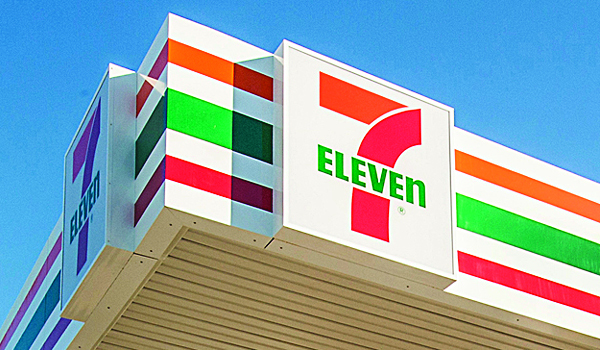On the heels of 7-Eleven’s wage fraud scandal, the company yesterday announced the shock resignations of its Chairman Russ Withers, CEO Warren Wilmot and General Manager Operations Natalie Dalbo – effective immediately.
Independent Non-Executive Director and Deputy Chair Michael Smith will assume the role of Chairman and Mr Bob Baily has been appointed interim CEO. Mr Smith will lead an executive search process to find a new CEO.
In an announcement by 7-Eleven, Mr Wilmot said that it would be difficult for him to play a central role in navigating the company through the current challenges it faces, given his long standing executive role, and that a new independent CEO was appropriate in the current circumstances. Despite his resignation as chairman of 7-Eleven, Russ Withers will stay on as chairman of the group holding company, which has investments of around $1.5 billion in 7-Eleven and Starbucks plus a substantial real estate and share portfolio.
“Naturally this is a major decision for me to stand aside as chairman,’ said Mr Withers. “However I will continue to be a shareholder and I am determined to make sure the company is in the right hands to move forward.”
Incoming chairman Michael Smith was, until the wage scandal broke, chairman of the Australian Institute of Company Directors. He has a solid business background as the most senior level and is said to be one of Australia’s acknowledged authorities on corporate strategy. Bob Baily, following senior roles at SPC Foods, the old Ampol Road Pantry chain and chairmanship of AACS, has held several high profile management positions. He was managing director of The Swan Brewing Company and continues to hold a number of independent directorships.
As previously reported by C&I WEEK, incoming Chairman Michael Smith reiterated that 7-Eleven has implemented a number of actions to identify the true extent of the under-payment of staff by franchisees and to implement appropriate and lasting remedies, including refining the business model in cooperation with franchisees. This will cost 7-Eleven many millions of dollars.
In an interview with Fairfax Media, Mr Smith said: “This has opened my eyes. I think we’re at the beginning of a revelation of something that is a very widespread problem. I think in this country we will find a very large numbers of workers who are not paid properly.”
Fairfax Media, which carried out the wages investigation in conjunction with the ABC’s Four Corners program, claimed that it had been inundated with calls from workers at small businesses and franchised chains who claimed that they were being underpaid.
Any C&I reader who has a teenager at home with a part time job, will know that under-payment is rife in Australia. High youth unemployment, a large student population and work hour restrictions for those on student visas has created a large pool of part timers who will reluctantly accept below-award wages in exchange for a steady job. There can be little doubt that many other organisations, large and small, may be trapped by a rigorous wages audit.
Since the early 1990’s 7-Eleven’s Russ Withers and more recently Warren Wilmot have worked extensively to further the interests of the convenience store industry and to raise its profile in Australia. Under Withers’ stewardship, the company was a founding member of Australasian Association of Convenience Stores and both have served as its chairman. 7-Eleven has been one of the industry’s most staunch supporters as well as its leader in retail innovation. Warren Wilmot has regularly interrupted a crowded schedule to accept pro-bono speaking engagements all over the country.
The damage to the 7-Eleven brand will be expensive and difficult for the company to repair, especially now that at least one major bank is reported to have closed its loan book to prospective 7-Eleven franchisees. There can be little doubt that broader convenience industry has also been tainted. Regardless of whether they are innocent or guilty of any wrongdoing, this is the last thing that Withers and Wilmot would have wanted.

